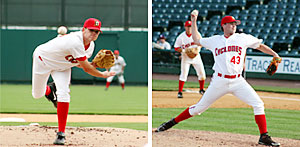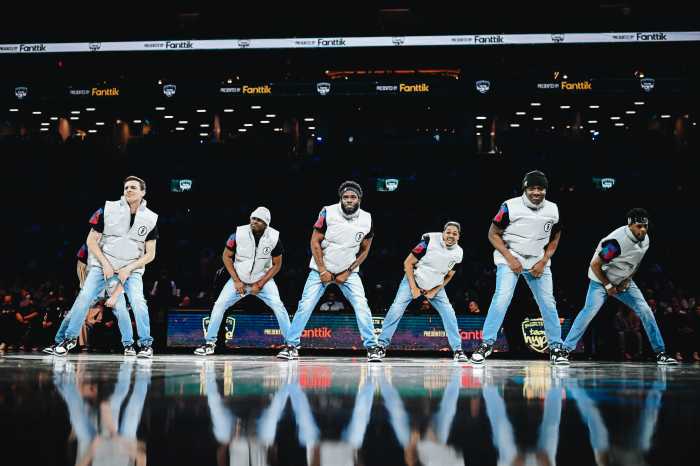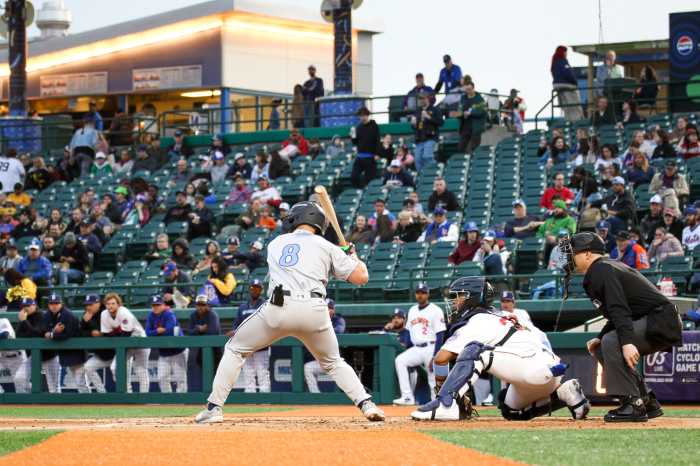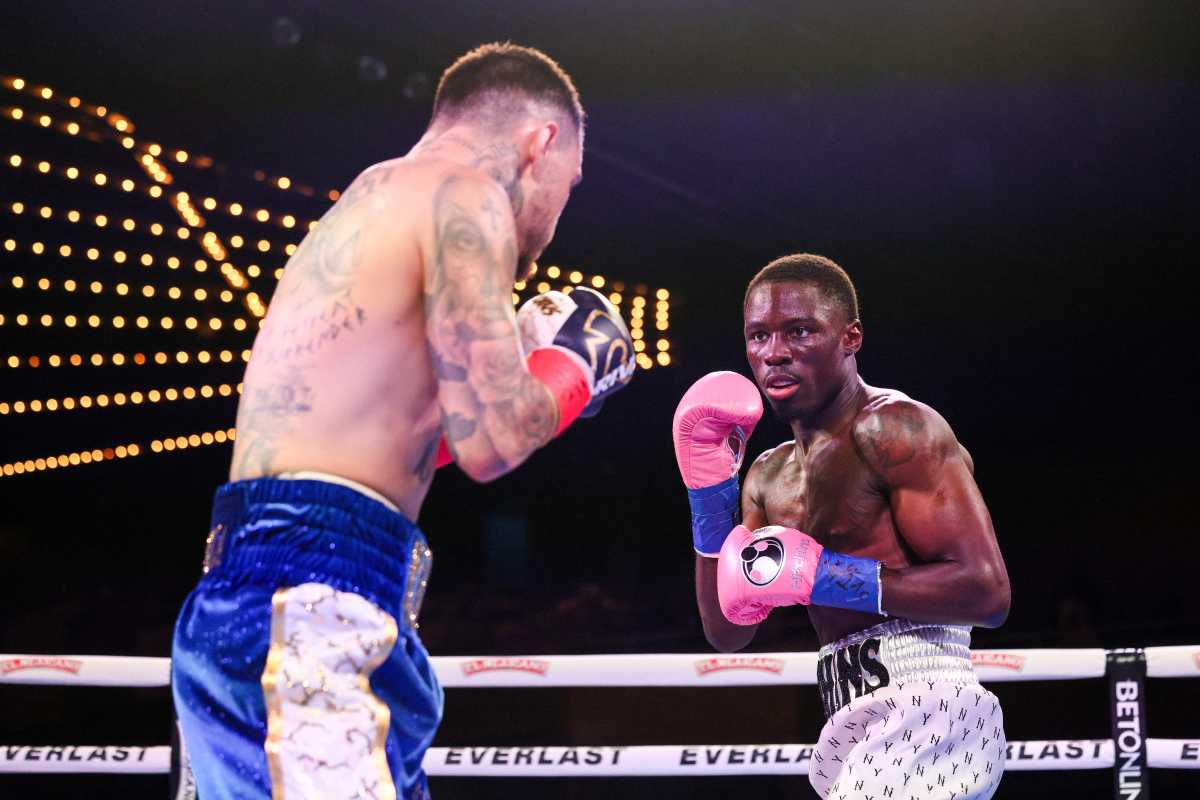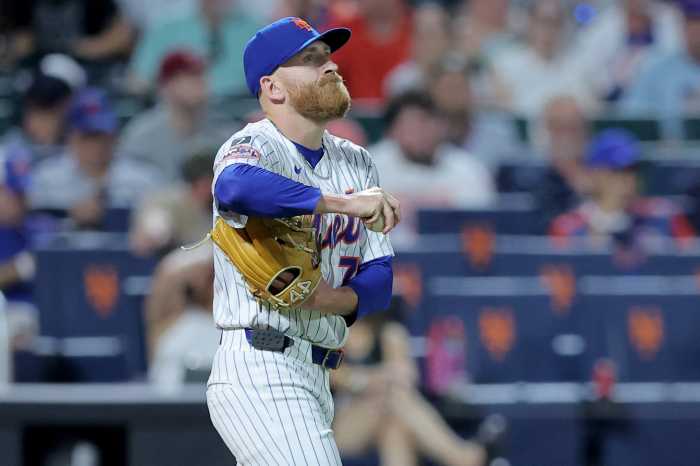The Cyclones played the longest game in New York–Penn League history on July 20 — and lost it by giving up five runs in the 26th inning after bringing in an outfielder to pitch.
There were only a few hundred fans left when the six-hour, 40-minute war of attrition ended.
The record-setting game started at noon, a rare day game that had been put on the schedule for summer campers (who were also long gone by the final out).
The game started normally enough.
Brooklyn starter Eric Brown held Oneonta scoreless in the first, while the Cyclones got on the board in their half of the opening frame.
Oneonta tied the game in the fourth — and after that … goose-eggs for 21 innings.
There were scoring chances that came and went.
In the 11th, the Cyclones had runners on first and second, but Jake Eigsti bunted into a forceout. In the top of the 12th, Oneonta got a runner on third with just one out, but couldn’t score him. In the bottom of the inning, Jonathan Schemmel singled and later ended up on third, but Jonathan Sanchez flied out to end the inning.
Those innings were the exception. Mostly, it was three-up, three-down.
“There were so many 1-2-3 innings that it was hard to use strategy,” said Cyclone manager George Greer. “Except to make them go deep into the count — use up pitchers.”
Only hard-core fans were still in their seats after the 16th inning, said Gene Berardelli, a Sheepshead Bay native who stayed until the bitter end.
“Around the 16th, all the fans that were going to leave had gone,” he said.
Things started to feel surreal after the game crossed the 20-inning mark.
“It hit me when I said, ‘Now we go to the top of the 20th,’ ” said Warner Fusselle, the Cyclones’ radio announcer. “I had never said that before.”
Some fans were feeling things they’d never felt before, as well.
“It was like an out-of-body experience,” said Burnley Duke Dame, a fan from Park Slope, who also stayed until the final out was recorded.
It was strange for the players as well.
“Between innings, I would sometimes go into the clubhouse to watch the game on TV,” said Schemmel, who played the whole game.
“You have to maintain focus, but in a game that long, I would deliberately relax and lose focus in the clubhouse just so I could regain my concentration when I went back out there.”
The game was also physically taxing.
“We were exhausted,” said Schemmel. “My last three at-bats, I could hardly swing the bat, it was so heavy.
“It seemed as the game went along that the team that ran out of pitchers first would lose.”
How right he was.
The Mets organization has strict rules concerning the way pitchers are used, and the Cyclones were out of available hurlers for the 25th inning.
“The only two players we could use were both outfielders, Elvis Cruz and Mark Wright,” said Hector Berrios, the Cyclones pitching coach. “Cruz had a hand injury, so it was Wright.”
Wright had not pitched since high school, six years ago.
“Around the 20th inning, I said to Scott [Hunter, the pitching coach], ‘I can throw an inning if you need me,’ “ Wright said. “I was kind of kidding. The last time I pitched was when Germantown High School won the AAA Tennessee State Championship. I was the winning pitcher in that game.”
Cyclone catcher Teddy Dziuba couldn’t believe his eyes when the outfielder took the mound.
“My jaw dropped,” Dziuba said.
Wright had some good stuff, believe it or not. He got the first two hitters to ground out to third and he retired the third on a fly ball.
“I was excited,” said Wright. “The adrenaline was really flowing.”
He could’ve gotten his first — and probably last — professional win if his teammates had completed a mini-two-out rally in the bottom of the 25th.
Dan Cummins and Jonathan Sanchez had singled, but Jake Eigsti grounded out.
The wheels came off the Wright wagon in the top of the 26th, when he walked the first two batters, who were promptly bunted over. After a single scored both runners, the floodgates opened.
After two more singles, a Tim Grogan error and another single, the Tigers were up 6–1.
The Cyclones went down 1-2-3 in the bottom of the 26th — and the longest game in league history was, mercifully, over.
Despite its length, this contest was still a full seven innings shorter than the longest professional baseball game ever played — a legendary battle between Pawtucket and Rochester that began on April 18, 1981, was suspended in the wee hours of April 19 and completed on June 23. Former Cyclones coaches Bobby Ojeda and Roger LaFrancois played in that immortal game.
For the Cyclones on the losing side of this contest, the loss was hard to take.
“It was devastating,” said Schemmel. “We were busting our butts not to lose.”
Yet the fans got memories for a lifetime.
“I’ve never seen pitching like that — ever,” said Berardelli, referring to the 21 innings of scoreless baseball thrown by 15 pitchers.
And Dame said she’s been stopped in the neighbhood ever since word got out that she saw the entire game.
“People have been asking me what it was like,” she said. “I tell them that when it was over, it was a letdown. We were waiting all game for something great to happen and it never did.”
The length of the game presented logistical problems for people who make their living covering the team.
Announcer Fusselle hadn’t eaten or drank for the entirety. And that wasn’t his only problem.
“When it was done,” he said, “I could not stand up.”
It was hardest on the photographers, who had to keep focused (that’s literally and figuratively, of course) even though very little was happening on the field.
“You always have to be ready to take the shot of the winning run,” said Gary Thomas, who photographed the game for The Brooklyn Papers. “Even when the Cyclones management handed out free sodas in the 22nd inning, I didn’t bother to go up and get one because I couldn’t risk missing something.
“Plus, I was too tired to move.”
June 29, 2006 issue


